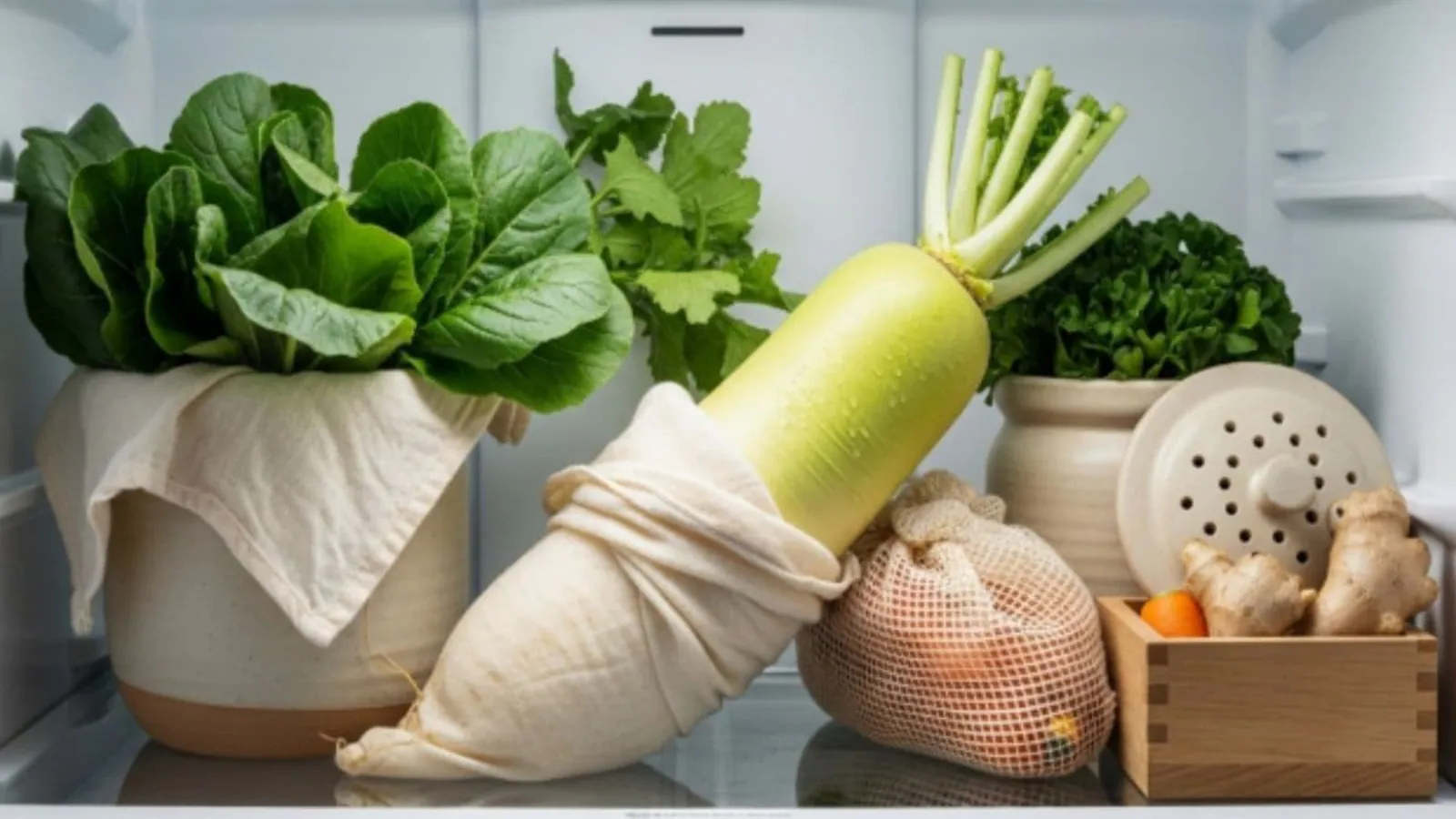Copyright news18

Vegetables in the refrigerator often wilt or lose their flavour within two to three days, but the Japanese have discovered a natural, clever method to keep them fresh for longer. Their approach preserves flavour, colour, and nutritional value. If you’re tired of vegetables spoiling quickly, these simple Japanese techniques can transform your kitchen. It involves careful preparation, the right humidity balance, natural wrapping, and strategic placement in the fridge, reducing food waste while promoting an eco-friendly, organic lifestyle. 8 Japanese Hacks To Store Vegetables The Right Way Preparation is Key: Proper cleaning and sorting of vegetables before refrigeration is essential. Use vegetables with blemishes or bruises first, and remove rubber bands or damaged leaves to prevent excessive moisture. Store Only Dry Vegetables: If vegetables have dirt or dust, wash lightly and dry thoroughly before storing. Wet vegetables rot quickly. Keep Leafy Vegetable Stems Intact: Do not cut the stems of leafy greens like spinach, coriander, or fenugreek. Retaining the stems helps preserve moisture and keeps leaves vibrant for longer. Maintain the Right Humidity Balance: The cornerstone of Japanese storage is humidity control. Wrap vegetables in a cotton cloth, muslin, or paper towel. For green vegetables, keep the cloth slightly damp; for mushrooms or berries, use a dry cloth. Avoid Plastic Bags: Plastic traps ethylene gas, which accelerates spoilage. Opt for breathable fabrics or mesh bags to allow proper air circulation. Vegetables That Thrive in the Fridge: Broccoli, cabbage, eggplant, asparagus, beans, lettuce, and berries remain fresh in cool temperatures. Store them in the fridge’s vegetable drawer. Vegetables to Keep Out of the Fridge: Onions, potatoes, tomatoes, and garlic should not be refrigerated, as cold makes them tough or flavourless. Store these in a cool, dry place instead. Check Every Few Days: Inspect your vegetables every two to three days. Replace damp cloths and lightly moisten leaves if they start to wilt. Reduce Food Wastage A little attention goes a long way in keeping vegetables fresh while cutting down on food wastage. These Japanese methods utilises an eco-friendly approach, avoiding plastic and preserving the natural flavour of vegetables. These storage techniques remind us that respecting natural processes can make our food healthier, more flavourful, and environmentally friendly. By following these principles, vegetables remain healthy, tasty, and sustainable for weeks.



